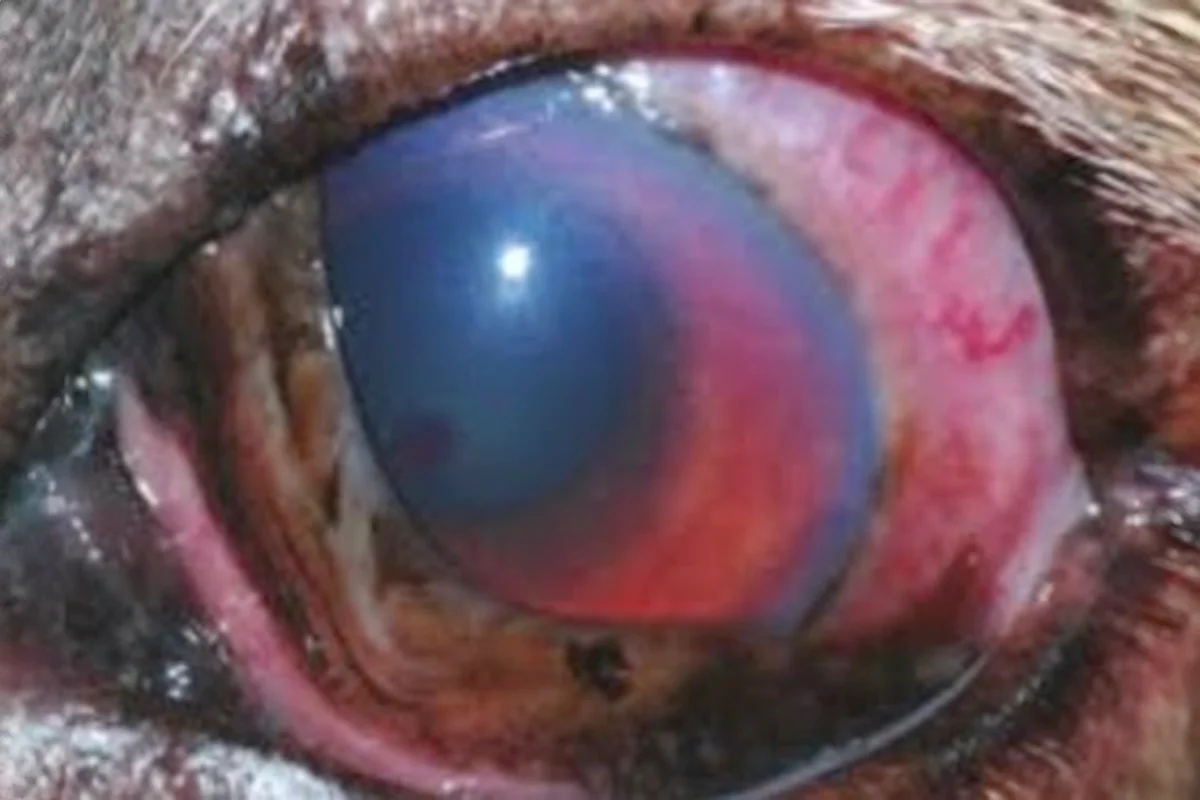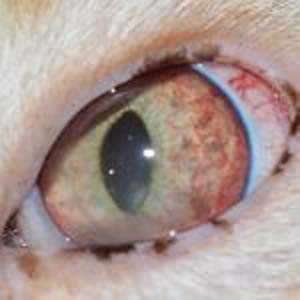Pet Uveitis (Inflammation) in Spring, TX
Learn about pet uveitis and its causes, symptoms, and treatments at North Houston Veterinary Ophthalmology in Spring, TX. Schedule an appointment today.

Uveitis (Intraocular Inflammation)
Understanding Uveitis
Uveitis is a common yet serious condition affecting the eyes of pets, characterized by inflammation of the uvea. The uvea consists of the iris, ciliary body, and choroid. This condition can cause significant discomfort and potential vision loss if left untreated. Our skilled team at North Houston Veterinary Ophthalmology specializes in diagnosing and treating uveitis to help fight the spread of this condition and bring your pet’s eyes back to regular health.

What is Uveitis?
Uveitis refers to the inflammation of the uvea, which includes three crucial parts of the eye: the iris, ciliary body, and choroid. The iris is the colored part visible to the naked eye, while the ciliary body and choroid are located behind the iris and require special instruments for examination. Anterior uveitis, which affects the iris and ciliary body, is more common.
In a healthy eye, a barrier prevents large proteins and cells from entering. However, this barrier is disrupted in cases of uveitis, allowing inflammatory cells and other components to leak into the eye, leading to inflammation.
Clinical Signs of Uveitis
The clinical signs of uveitis can vary depending on the severity and parts of the uvea involved. Symptoms may include:
- Redness in the eye
- Squinting
- Rubbing the eye
- Light sensitivity (photophobia)
- Ocular discharge
- Pupil asymmetry (miosis)
- Cloudiness in the eye
- Blood in the eye (hyphema)
- Vision loss in severe cases
If you notice any of these symptoms in your pet, it is crucial to seek veterinary care promptly to prevent further complications.
Causes of Uveitis
Uveitis can result from various conditions that disrupt the normal blood-queous barrier in the eye. Some common causes include:
- Trauma to the eye
- Corneal ulcerations
- Infectious diseases (bacterial, viral, or fungal)
- Vascular diseases (such as systemic hypertension)
- Autoimmune diseases
- Cancer
- Cataracts
In some cases, the exact cause of uveitis cannot be determined, which is referred to as idiopathic uveitis.
Diagnosis and Treatment of Uveitis
At North Houston Veterinary Ophthalmology, we prioritize diagnosing the underlying cause of uveitis to provide effective treatment. The diagnostic process may include:
- Comprehensive eye examination
- Blood tests to check for infectious diseases or cancers
- Imaging studies, if necessary
Once the cause is identified, our treatment approach aims to reduce inflammation and restore the normal blood-queous barrier. Treatment options may include:
- Topical and/or oral antibiotics
- Topical and/or oral steroids
- Non-steroidal anti-inflammatories (NSAIDs)
- Dilating agents to alleviate discomfort
In some instances, treatment may need to be continued in the long term to manage the condition effectively.
Why Choose North Houston Veterinary Ophthalmology?
North Houston Veterinary Ophthalmology is dedicated to providing comprehensive eye care for pets, including those suffering from uveitis. Our specialized services include:
- Advanced diagnostic techniques to identify the underlying cause of uveitis
- Personalized treatment plans tailored to your pet’s specific needs
- Ongoing support and monitoring to ensure the best outcomes
- Experienced veterinary ophthalmologists with a deep understanding of eye conditions in pets
By choosing our clinic, you can trust that your pet is in capable hands and receiving the highest standard of care for its eye health.
Schedule an Appointment Today
If your pet shows signs of uveitis, don’t hesitate to seek professional veterinary ophthalmology care. Contact North Houston Veterinary Ophthalmology in Spring, TX, to schedule an appointment. Our team is here to help your pet achieve optimal eye health and overall well-being.
For more information about pet uveitis and our services, please visit our website or call us directly. Your pet’s eye health is our top priority, and we are committed to providing compassionate and effective care.